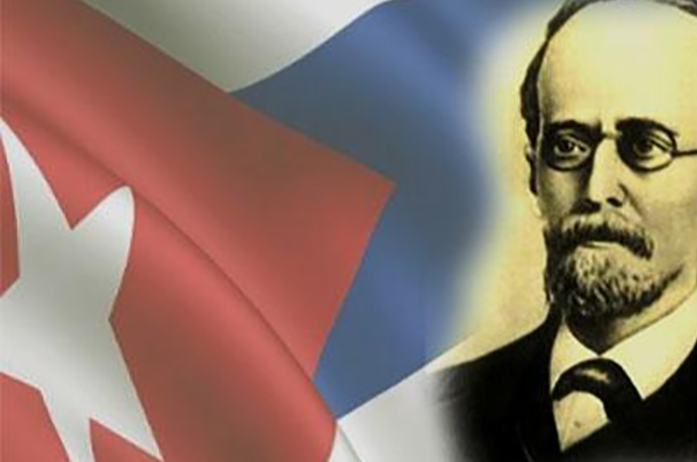
Havana, August 15 - They wanted to silence the rebellion and its song when on August 17, 1870 a Spanish firing squad killed Major General of the Liberation Army Pedro “Perucho” Figueredo Cisneros, who went down in Cuban history as one of the first freedom fighters and the one who bequeathed to his compatriots the battle song that became the National Anthem.
He gave to the children of this land an undeniable spiritual good along with the sobering example of his life as one of the founding fathers of the Homeland and one of the patricians who plotted and worked hard for the first libertarian uprising initiated on October 10, 1868 under the leadership of Carlos Manuel de Céspedes and turned into the Ten Years' War.
His death, at the hands of an enemy platoon when he was seriously ill, took place in a colonial fortress in Santiago de Cuba. He was humiliated and disrespected in spite of the typhoid fever that he had been suffering for days before he was captured, along with his family, in the Santa Rosa farm, near the Sierra Maestra mountains.
As an urgent War Council put him on trial on August 16, 1870, the patriot courageously declared before the judges: “I am an attorney, so I know the Law and the penalty that I have coming, which is death. But that is not a reason for you to believe that you’re winning, because this Island is lost for Spain; the bloodshed that you cause is useless, and it is high time that you own your mistake. My death will be no loss, for I’m sure that on this date another more capable person will take my place. I regret dying but only because I won’t be able to enjoy with my brothers the glorious work of redemption that they started and is now near the end”.
When he was taken to the wall the next day, he was in such a bad shape that he could not walk or stand upright. He was carried on the back of a donkey, and as he was mocked and scorned by his executioners along the way, he is said to have told them, “It's all right, it's all right, I'm not the first redeemer to ride a donkey”.
The testimony of those who heard his final words, “To die for the Homeland is to live!”, the most sublime line of his song, is heartrending.
“Perucho” was born in Bayamo on February 18, 1818 to a family of wealthy landowners. His parents ensured him a good education, first in his native town and later on in the University of Havana, where he graduated in 1840 as a Bachelor in Philosophy and Law. Then he traveled to Spain to get a Law degree in Barcelona.
He developed strong bonds of friendship with Carlos Manuel de Céspedes in 1851, when he was already practicing Law and was married to Isabel Vázquez, with whom he had 11 children.
Those were hard times for both the wealthy and those who suffered slavery and poverty, because Spain’s iron hand delayed the development of the production and prevented the progress of the criollos who worked very hard for and loved their land.
Carlos Manuel, Perucho, the wealthy Francisco Vicente Aguilera, Francisco Maceo Osorio, Donato Mármol, Francisco Javier de Céspedes and patriots who wanted freedom, justice and equality established the city's Revolutionary Board.
When the crucial moment finally arrived and the uprising was ordered in 1868, Carlos Manuel de Céspedes was living in the Demajagua sugar mill and Figueredo, who was in Bayamo at the time, organized a party to meet with the Initiator.
On October 18, the pro-independence fighters sieged Bayamo, which fell two days later and was proclaimed as the capital of the Republic in Arms to the joy of the residents, who took to the streets to celebrate the victory. The patriotic song was born there.
As fate would have it, the ineffable and beloved Perucho fell with honor, fighting with his soul and the Anthem. The first soldier and impeccable mambi General that he always was lives on in the song of all and more. (Text and photo: ACN)